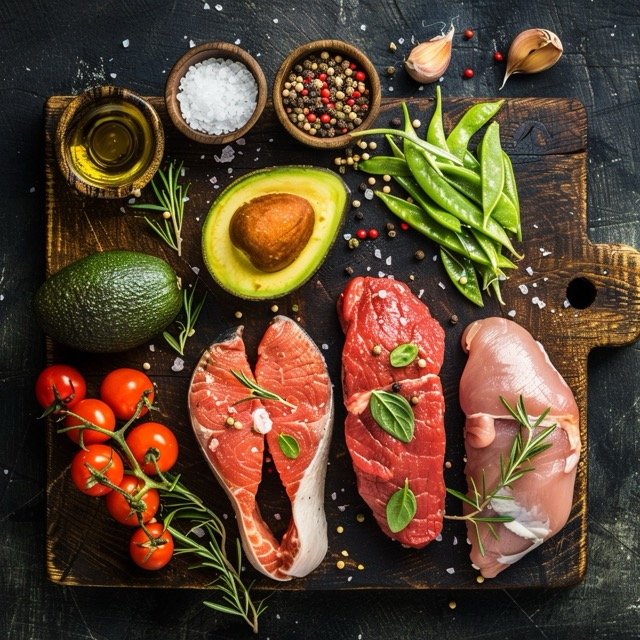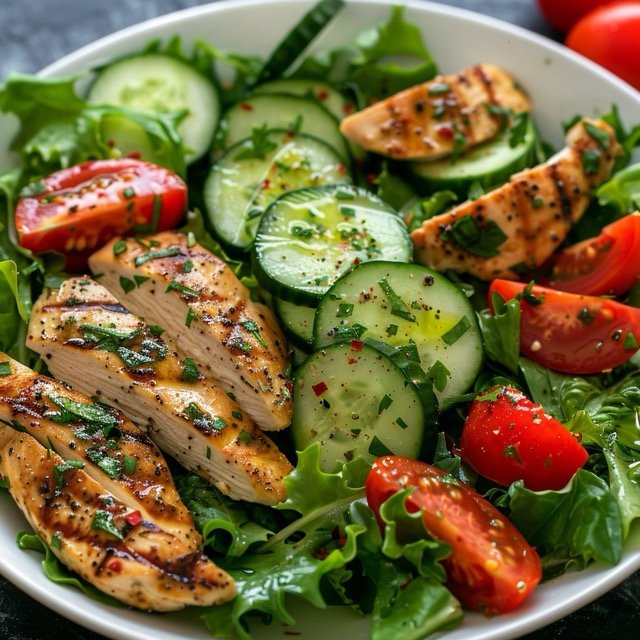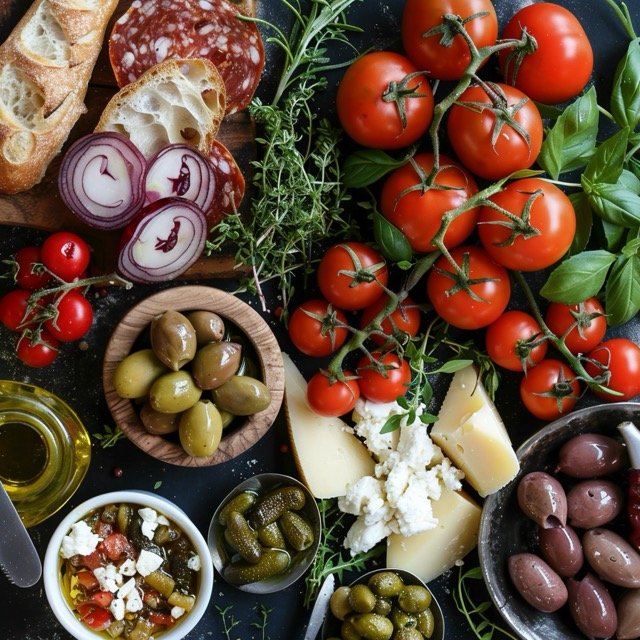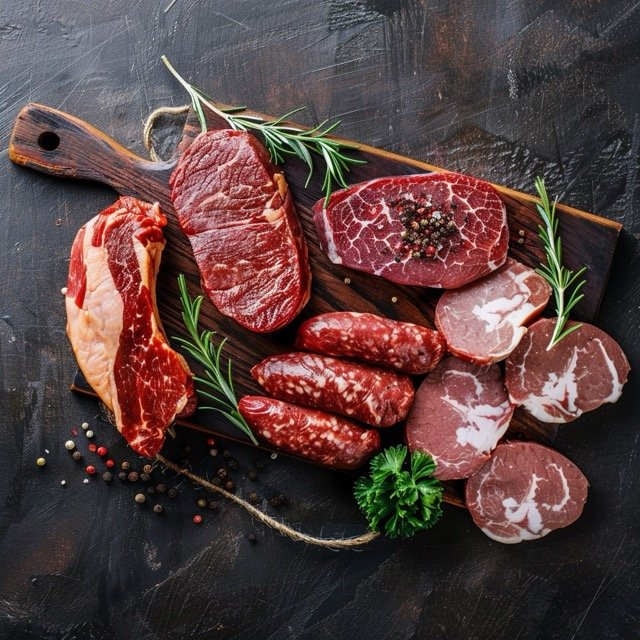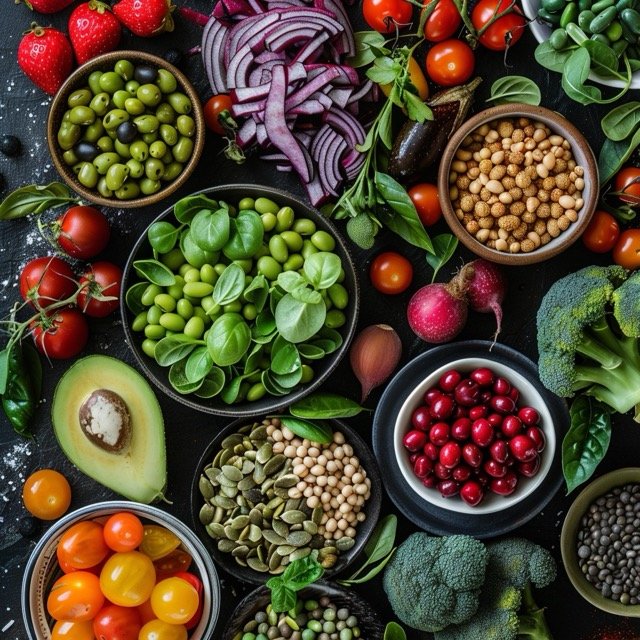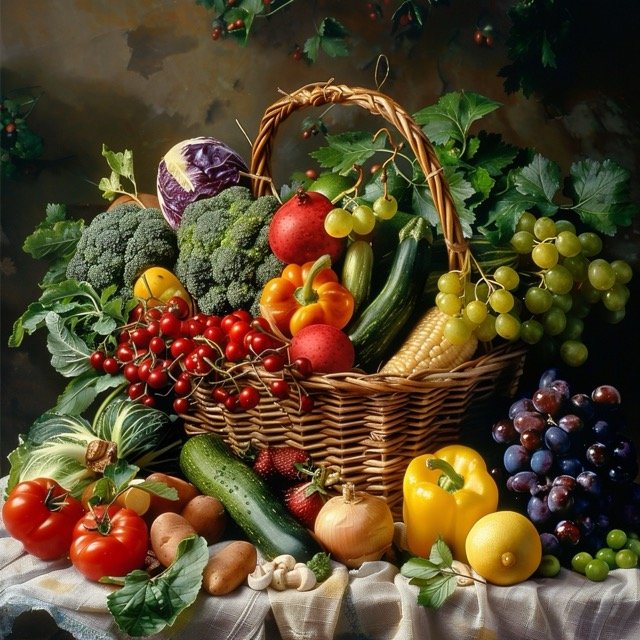The Vegan Diet: A Comprehensive Guide on The Vegan Lifestyle
The Vegan Diet has gained significant popularity in recent years, becoming a lifestyle choice for many who seek to improve their health, protect the environment, and advocate for animal rights. This diet excludes all animal products, including meat, dairy, and eggs, focusing instead on plant-based foods like fruits, vegetables, grains, nuts, and seeds.
Adopting a vegan diet can lead to numerous health benefits, including improved heart health, weight loss, and better blood sugar control. However, careful planning is also required to ensure nutritional adequacy and avoid potential pitfalls.
Key Points of the Vegan Diet
1. Health Benefits of the Vegan Diet
Heart Health
One of the most significant benefits of the vegan diet is its potential to improve heart health. Research has shown that a plant-based diet can lower cholesterol levels, reduce blood pressure, and decrease the risk of heart disease. For instance, a study published in the Journal of the American Heart Association found that vegans had a 32% lower risk of heart disease compared to omnivores (https://www.ahajournals.org/doi/10.1161/JAHA.119.012865).
Weight Management
The vegan diet is often associated with weight loss and improved body composition. Plant-based foods are typically lower in calories and higher in fiber, which can help with satiety and reduce overall calorie intake. A meta-analysis of 12 randomized controlled trials published in Nutrition Reviews concluded that vegan diets lead to significant weight loss compared to non-vegetarian diets.
Blood Sugar Control
Vegan diets can also help manage blood sugar levels and reduce the risk of type 2 diabetes. A study in PLOS Medicine reported that vegans have a 50% lower risk of developing type 2 diabetes. This is likely due to the high fiber content of plant-based foods, which helps regulate blood sugar levels.
2. Nutritional Considerations
Protein
One common concern about the vegan diet is whether it provides enough protein. While it’s true that vegans need to be mindful of their protein intake, numerous plant-based sources can meet these needs. Legumes, tofu, tempeh, seitan, and quinoa are excellent protein sources. For example, one cup of cooked lentils provides 18 grams of protein, which is about a third of the daily requirement for an average adult.
Vitamin B12
Vitamin B12 is a crucial nutrient not naturally found in plant foods. Vegans must obtain B12 from fortified foods or supplements. According to the National Institutes of Health, a B12 deficiency can lead to anemia and neurological issues, so it’s essential to include B12-fortified cereals and plant milk or take a B12 supplement.
Iron
Iron from plant sources is less easily absorbed by the body than iron from animal products. Vegans should consume iron-rich foods such as spinach, lentils, and chickpeas alongside vitamin C-rich foods like bell peppers and citrus fruits to enhance iron absorption. The American Journal of Clinical Nutrition suggests that vegans may need to consume nearly twice the amount of iron as omnivores to meet their needs.
Calcium
While dairy products are the most common source of calcium, vegans can obtain this mineral from fortified plant milk, tofu, almonds, and leafy greens like kale and bok choy. The Journal of the American Dietetic Association highlights that vegans can maintain bone health with adequate calcium intake from these sources.
Omega-3 Fatty Acids
Omega-3 fatty acids are vital for heart and brain health. Flaxseeds, chia seeds, walnuts, and hemp seeds are good plant-based sources of ALA, a type of omega-3. However, the body converts ALA to the more beneficial EPA and DHA inefficiently. Therefore, a vegan DHA supplement derived from algae is recommended.
3. Environmental and Ethical Considerations
Environmental Impact
The vegan diet is often promoted for its environmental benefits. Animal agriculture significantly contributes to greenhouse gas emissions, deforestation, and water usage. A United Nations Food and Agriculture Organization report indicates that livestock accounts for 14.5% of global greenhouse gas emissions. Switching to a vegan diet can significantly reduce one’s carbon footprint.
Ethical Considerations
For many, veganism is a choice rooted in ethics. The diet avoids all forms of animal exploitation and cruelty, aligning with a philosophy of compassion towards animals. The ethical appeal of veganism extends to concerns about factory farming practices, animal welfare, and the moral implications of consuming animal products.
4. Practical Tips for Adopting a Vegan Diet
Meal Planning
Transitioning to a vegan diet requires some planning to ensure nutritional balance. Utilizing a variety of whole foods can help meet dietary needs, and tools like meal planners and recipe apps can make the transition smoother.
Reading Labels
Learning to read food labels is crucial. Many processed foods contain hidden animal products. Ingredients like gelatin, casein, and certain food colorings are derived from animals. Opt for products labeled as vegan or check ingredient lists carefully.
Dining Out
Dining out as a vegan can be challenging but is becoming easier as more restaurants offer vegan options. Apps like HappyCow can help locate vegan-friendly restaurants. When dining out, don’t hesitate to ask about ingredients or request modifications to make a meal vegan.
Supplements
Consider taking supplements for nutrients that are harder to obtain from a vegan diet, such as B12, vitamin D, and omega-3s. Consulting with a healthcare provider can help determine the right supplements based on individual needs.
What are the 5 most important rules of a vegan diet?
A vegan diet can be a transformative lifestyle change promoting health, ethical living, and environmental sustainability. Here are the five most important rules to follow to reap the benefits of a vegan diet:
1. Focus on Whole Foods
Prioritize whole, unprocessed foods to ensure you get the full spectrum of nutrients your body needs. This includes:
- Fruits and Vegetables: Aim for various colors and types to maximize nutrient intake.
- Whole Grains: Incorporate foods like quinoa, brown rice, oats, and whole wheat.
- Legumes: Beans, lentils, and chickpeas are excellent sources of protein and fiber.
- Nuts and Seeds: For healthy fats and proteins, include almonds, walnuts, flaxseeds, chia seeds, and hemp seeds.
2. Ensure Adequate Protein Intake
While plant-based diets can provide sufficient protein, it’s important to diversify your sources:
- Legumes: Beans, lentils, peas, and chickpeas.
- Tofu and Tempeh: Excellent soy-based protein sources.
- Seitan: A high-protein wheat gluten product.
- Nuts and Seeds: Incorporate a variety to balance amino acid profiles.
- Whole Grains: Quinoa, farro, and buckwheat are good protein sources.
3. Supplement Critical Nutrients
Certain nutrients are harder to obtain from plant sources, so consider supplementation:
- Vitamin B12: Essential for nerve function and blood formation; found in fortified foods and supplements.
- Vitamin D: Important for bone health; consider fortified foods or supplements, especially in regions with low sunlight.
- Omega-3 Fatty Acids: These are found in flaxseeds, chia seeds, and walnuts, but algae-based supplements are considered for EPA and DHA.
- Iron: Plant-based iron is less absorbable, so eat iron-rich foods with vitamin C to enhance absorption or consider supplements if needed.
- Calcium: Obtainable from fortified plant milk, tofu, and leafy greens, but supplements can be considered if intake is insufficient.
4. Read Labels Carefully
Many processed foods contain hidden animal products, so always check labels for:
- Gelatin: A common ingredient in candies and some processed foods.
- Casein and Whey: Dairy-derived proteins found in some processed foods.
- Food Colorings and Additives: Some are animal-derived, like carmine (from insects).
- Fortification: Ensure products are fortified with B12, vitamin D, and other essential nutrients.
5. Balance Your Meals
A well-planned vegan diet should be nutritionally balanced. Aim to include:
- Variety: Ensure your diet is varied to cover all essential nutrients.
- Macros and Micros: Balance your macronutrients (carbohydrates, proteins, fats) and ensure adequate micronutrients (vitamins and minerals).
- Meal Planning: Plan your meals to include a mix of protein, healthy fats, and fiber-rich carbohydrates.
- Hydration: Drink plenty of water every day and consider herbal teas and fortified plant milks.
Following these five rules will help ensure a balanced, nutritious, and sustainable vegan diet. By focusing on whole foods, ensuring adequate protein, supplementing critical nutrients, reading labels carefully, and balancing your meals, you can enjoy the numerous health benefits of a vegan lifestyle while maintaining nutritional adequacy.
2-Day Sample Vegan Meal Plan
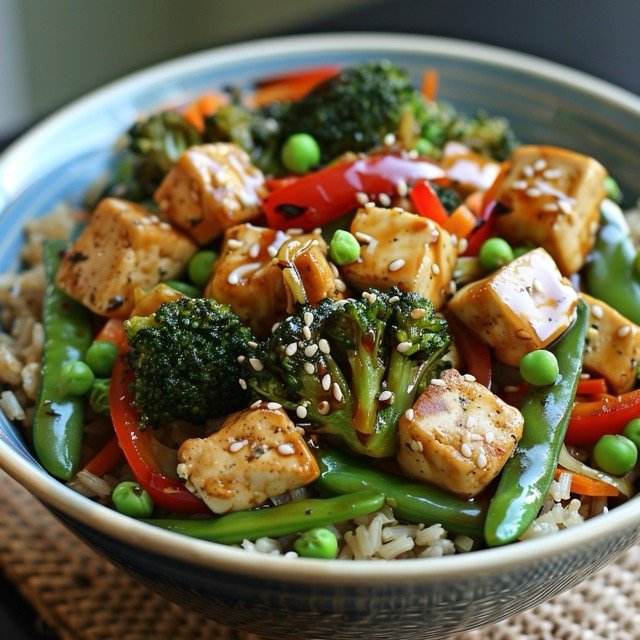
Day 1
Breakfast– Smoothie Bowl
- 1 cup unsweetened almond milk (Califia Farms Organic Almond Milk)
- 1 banana
- 1/2 cup frozen berries (blueberries, strawberries)
- 1 tablespoon chia seeds
- 1 tablespoon almond butter (Trader Joe’s Organic Almond Butter or MaraNatha Organic Creamy Almond Butter)
- 1/4 cup granola (optional, for topping)
- Handful of fresh spinach
Nutritional Balance:
- Carbohydrates: Banana, berries, granola
- Proteins: Chia seeds, almond butter
- Fats: Almond butter, chia seeds
- Vitamins/Minerals: Vitamin C, potassium, iron, omega-3s, calcium (from fortified almond milk)
Snack– Apple Slices with Peanut Butter
- 1 medium apple, sliced
- 2 tablespoons natural peanut butter (Smucker’s Organic Natural Creamy Peanut Butter)
Nutritional Balance:
- Carbohydrates: Apple
- Proteins: Peanut butter
- Fats: Peanut butter
- Vitamins/Minerals: Fiber, vitamin C, healthy fats
Lunch- Quinoa Salad
- 1 cup cooked quinoa
- 1/2 cup chickpeas
- 1/2 cup diced cucumber
- 1/2 cup cherry tomatoes, halved
- 1/4 cup chopped red bell pepper
- 1/4 avocado, diced
- 1 tablespoon olive oil
- Juice of 1 lemon
- Fresh parsley, chopped
Nutritional Balance:
- Carbohydrates: Quinoa, chickpeas, vegetables
- Proteins: Quinoa, chickpeas
- Fats: Avocado, olive oil
- Vitamins/Minerals: Vitamin C, iron, folate, fiber, healthy fats
Snack– Carrot Sticks with Hummus
- 1 cup carrot sticks
- 1/4 cup hummus
Nutritional Balance:
- Carbohydrates: Carrot sticks
- Proteins: Hummus (from chickpeas)
- Fats: Hummus (from tahini)
- Vitamins/Minerals: Vitamin A, fiber, protein
Dinner– Stir-fry with Tofu and Vegetables
- 1 cup cubed firm tofu
- 1 cup broccoli florets
- 1/2 cup snap peas
- 1/2 red bell pepper, sliced
- 1 small carrot, julienned
- 2 tablespoons soy sauce (low sodium)
- 1 tablespoon sesame oil
- 1 teaspoon ginger, minced
- 1 garlic clove, minced
- 1/2 cup cooked brown rice
Nutritional Balance:
- Carbohydrates: Brown rice, vegetables
- Proteins: Tofu
- Fats: Sesame oil
- Vitamins/Minerals: Vitamin C, vitamin A, calcium, iron, fiber, protein
Day 2
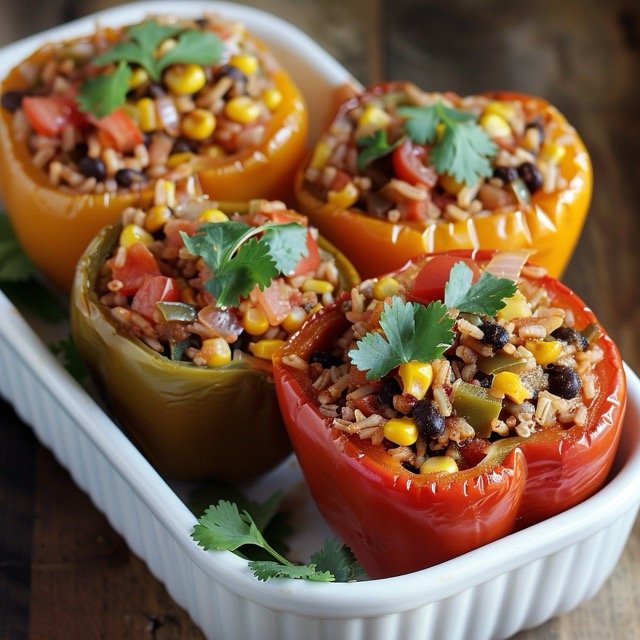
Breakfast– Overnight Oats
- 1/2 cup rolled oats
- 1/2 cup unsweetened almond milk
- 1/4 cup coconut yogurt
- 1 tablespoon chia seeds
- 1/2 cup mixed berries
- 1 tablespoon maple syrup (optional)
Nutritional Balance:
- Carbohydrates: Oats, berries
- Proteins: Chia seeds, almond milk
- Fats: Chia seeds, coconut yogurt
- Vitamins/Minerals: Fiber, vitamin C, calcium, omega-3s
Snack– Trail Mix
- 1/4 cup raw almonds
- 1/4 cup raw cashews
- 2 tablespoons dried cranberries
- 1 tablespoon pumpkin seeds
Nutritional Balance:
- Carbohydrates: Dried cranberries
- Proteins: Almonds, cashews
- Fats: Almonds, cashews, pumpkin seeds
- Vitamins/Minerals: Healthy fats, protein, iron, magnesium
Lunch– Lentil Soup
- 1 cup cooked lentils
- 1/2 cup diced carrots
- 1/2 cup diced celery
- 1/2 cup diced onion
- 2 cups vegetable broth
- 1/2 cup diced tomatoes
- 1 clove garlic, minced
- 1 tablespoon olive oil
- Fresh parsley, chopped
Nutritional Balance:
- Carbohydrates: Lentils, vegetables
- Proteins: Lentils
- Fats: Olive oil
- Vitamins/Minerals: Fiber, iron, vitamin A, vitamin C, folate
Snack– Cucumber Slices with Guacamole
- 1 cup cucumber slices
- 1/4 cup guacamole
Nutritional Balance:
- Carbohydrates: Cucumber
- Proteins: Minimal
- Fats: Avocado in guacamole
- Vitamins/Minerals: Vitamin E, vitamin K, healthy fats
Dinner– Stuffed Bell Peppers
- 2 bell peppers, halved and seeded
- 1 cup cooked brown rice
- 1/2 cup black beans
- 1/2 cup corn kernels
- 1/2 cup diced tomatoes
- 1/4 cup diced onion
- 1 tablespoon olive oil
- 1 teaspoon cumin
- 1 teaspoon paprika
- Fresh cilantro, chopped
Nutritional Balance:
- Carbohydrates: Brown rice, beans, corn, vegetables
- Proteins: Black beans
- Fats: Olive oil
- Vitamins/Minerals: Fiber, vitamin C, iron, folate, protein
Conclusion
This 2-day vegan meal plan provides a variety of nutrient-dense foods to ensure a balanced intake of carbohydrates, proteins, fats, and essential vitamins and minerals. Incorporating whole foods, diverse protein sources, and mindful supplementation can help maintain nutritional adequacy and promote overall health.
Negative Aspects of the Vegan Diet
Nutritional Deficiencies
While the vegan diet can be nutritionally adequate, it requires careful planning to avoid deficiencies. Nutrients like B12, iron, calcium, and omega-3 fatty acids can be challenging to obtain in sufficient amounts from plant sources alone. This can be seen in diets like the vegetarian or vegan diet.
Social and Practical Challenges
Adopting a vegan diet can pose social and practical challenges. Ensure that vegan options are available at social gatherings and family meals, and dining out may require extra effort, which can sometimes lead to feelings of isolation or inconvenience.
Potential for Highly Processed Foods
Not all vegan foods are healthy. The market is flooded with highly processed vegan products that can be high in sugars, fats, and artificial additives. Relying heavily on these foods can negate some of the health benefits of a whole-foods-based vegan diet.
Conclusion
The vegan diet offers numerous health benefits, including improved heart health, weight management, and better blood sugar control. It also aligns with ethical values and environmental sustainability. However, careful planning is required to ensure nutritional adequacy and avoid potential deficiencies. Practical tips like meal planning, reading labels, and considering supplements can help make the transition smoother and more sustainable.
Further reading and consultation with a healthcare provider or nutritionist can provide additional guidance and support for those considering a vegan diet. Exploring vegan recipes, joining vegan communities, and staying informed about nutritional needs can also enhance the experience and benefits of a vegan lifestyle. Here at FittBeat, we will also release quality vegan recipes featuring only organic, clean ingredients, so stay tuned to the blog.
Further Reading:
- “How Not to Die” by Michael Greger, M.D.
- “The China Study” by T. Colin Campbell
- “Vegan for Life” by Jack Norris and Virginia Messina
Action Items:
- Start incorporating more plant-based meals into your diet gradually.
- Explore vegan recipes and meal planning tools.
- Consult with a healthcare provider about your nutritional needs and potential supplements.
By embracing a well-planned vegan diet, individuals can enjoy its health benefits while contributing to a more ethical and sustainable world.
References & Sources
Barnard, N. D., Cohen, J., Jenkins, D. J. A., Turner-McGrievy, G., Gloede, L., Jaster, B., Seidl, K., Green, A. A., & Talpers, S. (2006). A low-fat vegan diet improves glycemic control and cardiovascular risk factors in a randomized clinical trial in individuals with type 2 diabetes. Diabetes Care, 29(8), 1777–1783. https://doi.org/10.2337/dc06-0606, https://diabetesjournals.org/care/article/29/8/1777/28693/A-Low-Fat-Vegan-Diet-Improves-Glycemic-Control-and
Barnard, N. D., Katcher, H. I., Jenkins, D. J., Cohen, J., & Turner-McGrievy, G. (2009). Vegetarian and vegan diets in type 2 diabetes management. Nutrition Reviews, 67(5), 255–263. https://doi.org/10.1111/j.1753-4887.2009.00198.x, https://academic.oup.com/nutritionreviews/article/67/5/255/1825526
Cao, Y., Mauger, D. T., Pelkman, C. L., Zhao, G., Townsend, S. M., & Kris-Etherton, P. M. (2008). Effects of moderate (MF) versus lower fat (LF) diets on lipids and lipoproteins: A meta-analysis of clinical trials in subjects with and without diabetes. Journal of Clinical Lipidology, 3(1), 19–32. https://doi.org/10.1016/j.jacl.2008.12.008, https://www.lipidjournal.com/article/S1933-2874(08)00972-0/abstract
Dinu, M., Abbate, R., Gensini, G. F., Casini, A., & Sofi, F. (2017). Vegetarian, vegan diets and multiple health outcomes: A systematic review with meta-analysis of observational studies. Critical Reviews in Food Science and Nutrition, 57(17), 3640–3649. https://doi.org/10.1080/10408398.2016.1138447, https://www.tandfonline.com/doi/full/10.1080/10408398.2016.1138447
Evert, A. B., Boucher, J. L., Cypress, M., Dunbar, S. A., Franz, M. J., Mayer-Davis, E. J., Neumiller, J. J., Nwankwo, R., Verdi, C. L., Urbanski, P., & Yancy, W. S. (2013). Nutrition therapy recommendations for the management of adults with diabetes. Diabetes Care, 36(11), 3821–3842. https://doi.org/10.2337/dc13-2042, https://diabetesjournals.org/care/article/36/11/3821/38209/Nutrition-Therapy-Recommendations-for-the
Kim, H., Caulfield, L. E., Garcia‐Larsen, V., Steffen, L. M., Coresh, J., & Rebholz, C. M. (2019). Plant‐based diets are associated with a lower risk of incident cardiovascular disease, cardiovascular disease mortality, and all‐cause mortality in a general population of middle‐aged adults. Journal of the American Heart Association, 8(16). https://doi.org/10.1161/jaha.119.012865, https://www.ahajournals.org/doi/10.1161/JAHA.119.012865
Lee, Y.-M., Kim, S.-A., Lee, I.-K., Kim, J.-G., Park, K.-G., Jeong, J.-Y., Jeon, J.-H., Shin, J.-Y., & Lee, D.-H. (2016). Effect of a brown rice based vegan diet and conventional diabetic diet on glycemic control of patients with type 2 diabetes: A 12-week randomized clinical trial. PLOS ONE, 11(6). https://doi.org/10.1371/journal.pone.0155918, https://journals.plos.org/plosone/article?id=10.1371/journal.pone.0155918
M;, Y. Y. N. S. (2014, October 30). Vegetarian diets and glycemic control in diabetes: A systematic review and meta-analysis. Cardiovascular diagnosis and therapy. https://pubmed.ncbi.nlm.nih.gov/25414824/
Macknin, M., Kong, T., Weier, A., Worley, S., Tang, A. S., Alkhouri, N., & Golubic, M. (2015). Plant-based, no-added-fat or American Heart Association diets: Impact on cardiovascular risk in obese children with hypercholesterolemia and their parents. The Journal of Pediatrics, 166(4). https://doi.org/10.1016/j.jpeds.2014.12.058, https://www.jpeds.com/article/S0022-3476(14)01227-X/fulltext
Marsh, K., Zeuschner, C., & Saunders, A. (2011). Health implications of a vegetarian diet. American Journal of Lifestyle Medicine, 6(3), 250–267. https://doi.org/10.1177/1559827611425762, https://journals.sagepub.com/doi/10.1177/1559827611425762
Ogden, C. L., Carroll, M. D., Kit, B. K., & Flegal, K. M. (2012). Prevalence of obesity and trends in Body mass index among us children and adolescents, 1999-2010. JAMA, 307(5), 483. https://doi.org/10.1001/jama.2012.40, https://jamanetwork.com/journals/jama/fullarticle/1104932
Vang, A., Singh, P. N., Lee, J. W., Haddad, E. H., & Brinegar, C. H. (2008). Meats, processed meats, obesity, weight gain and occurrence of diabetes among adults: Findings from Adventist Health Studies. Annals of Nutrition and Metabolism, 52(2), 96–104. https://doi.org/10.1159/000121365, https://karger.com/anm/article-abstract/52/2/96/39994/Meats-Processed-Meats-Obesity-Weight-Gain-and?redirectedFrom=fulltext
World Health Organization, O. (2023, April 5). World Health Organization Diabetes factsheet. https://www.who.int/en/news-room/fact-sheets/detail/diabetes


